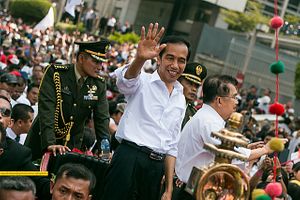Last week, the Indonesian government officially inaugurated a new explosives plant. It was yet another manifestation of Jakarta’s determination to strengthen its domestic defense industry which remains a priority for the government of President Joko “Jokowi” Widodo.
As I have noted before in these pages, in recent years, Indonesia has signaled its determination to build up the country’s domestic defense industry for a whole range of reasons, from boosting its self-sufficiency to contributing to the country’s economic prosperity. That pursuit of this goal continues under Jokowi, who has signaled a multipronged approach since assuming office back in 2014, from the transfer of technology to improving the management of state-owned defense companies (See: “An Indonesian Defense Revolution Under Jokowi?”).
On March 7, in yet another manifestation of this, Indonesia’s state-owned company PT Dahana inaugurated a new production facility in Subang, West Java. The inauguration of the facility, built on over two hectares of land, was witnessed by several Indonesian officials, including Defense Minister Ryamizard Ryacudu as well as defense personnel and members of local government.
The new factory, which cost around $300 million to be constructed, is intended to produce propellants for a range of weapons. It was first conceived in 2013 toward the end of the tenure of Jokowi’s predecessor, Susilo Bambang Yudhoyono, which saw the advancing of several important steps including a new regulation on the defense industry.
In his remarks at the ceremony, Ryacudu cast the new plant as an important step in the strengthening of the country’s defense industry. In a statement, Indonesia’s defense ministry said the new plant would help reduce the Indonesian military’s reliance on imported propellant technologies and raw materials. Yearly targets have been planned for a range of areas including nitroglycerin, rocket propellants, and spherical powders.
Despite this advance, Indonesia still has a long way to go in terms of achieving self-sufficiency on this score. It is still quite reliant on imports for its defense needs. And even PT Dahana’s director, Budi Antono, noted that a lot remains to be accomplished in some more specific areas such as propellants and ammonium nitrate. Making progress on this score will require not just PT Dahana’s efforts, but collaborating with other companies such as PT Pindad as well which is part of the cluster for National Defense and Hightech Industries (NDHI).

































